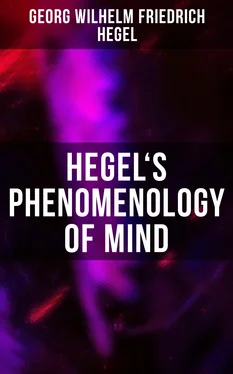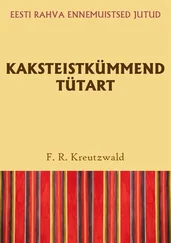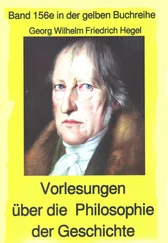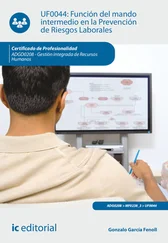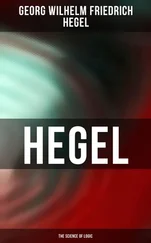This bare and simple infinity, or the absolute notion, may be called the ultimate nature of life, the soul of the world, the universal life-blood, which courses everywhere, and whose flow is neither disturbed nor checked by any obstructing distinction, but is itself every distinction that arises, as well as that into which all distinctions are dissolved; pulsating within itself, but ever motionless, shaken to its depths, but still at rest. It is self-identical, for the distinctions are tautological; they are distinctions that are none. This self-identical reality stands, therefore, in relation solely to itself. To itself; which means this is an other, to which the relation points; and relation to itself is, more strictly, breaking asunder; in other words, that very self-identity is internal distinction. These sundered factors have, hence, each a separate being of their own; each is an opposite-of an other; and thus with each the other is therein ipso facto expressly given; or it is not the opposite of an other , but only the pure opposite; and thus each is, therefore, in itself the opposite of itself. Or, again, each is not an opposite at all, but exists purely for itself, a pure self-identical reality, with no distinction in it. This being so, we do not need to ask, still less to treat anxiety over such a question as philosophy — or even regard this as a question philosophy cannot answer — “how distinction or otherness is to come out of this pure essence, how these are to be really got out of it”. For the process of disruption has already taken place; distinction has been excluded from the self-identical entity, and put on one side so far as it is concerned; what was to have been the self-identical is thus already one of the sundered elements, instead of being the absolute essential reality. That the self-identical breaks asunder means, therefore, just as truly that it supersedes itself as already sundered, that it cancels itself qua otherness. The unity which people usually have in mind when they say distinction cannot come out of unity, is, in point of fact, itself merely one moment of the process of disruption; it is the abstraction of simplicity, which stands in contrast with distinction. But in that it is abstraction, is merely one of the two opposed elements, the statement thus already implies that the unity is the process of breaking asunder; for if the unity is a negative element, an opposite, then it is put forward precisely as that which contains opposition within it. The different aspects of diremption and of becoming self-identical are therefore likewise merely this process of self-cancelling. For since the self-identical element, which should first divide itself asunder or pass into its opposite, is an abstraction, i.e. is already itself a sundered element, its diremption is eo ipso a cancelling of what it is, and thus the cancelling of its being sundered. The process of becoming self-identical is likewise a process of diremption; what becomes identical with itself thereby opposes itself to disruption, that is, itself thereby puts itself on one side; in other words, it becomes really something sundered.
Infinitude, this absolute unrest of pure self-movement, such that whatever is determined in any way, e.g., as being, is really the opposite of this determinateness — has from the start been no doubt the very soul of all that has gone before; but it is in the inner world that it has first come out explicitly and definitely. The world of appearance, or the play of forces, already shows its operation; but it is in the first instance as Explanation that it comes openly forward. And since it is at length an object for consciousness, and consciousness is aware of it as what it is, consciousness is in this way Self-consciousness . Understanding’s function of explaining furnishes in the first instance merely the description of what self-consciousness is. Understanding cancels the distinctions present in Law, distinctions which have already become pure distinctions but are still indifferent, and puts them inside a single unity, Force. This identification, however, is at the same time and immediately a process of diremption; for understanding removes the distinctions and sets up the oneness of force only by the fact that it creates a new distinction of force and law, which at the same time, however, is no distinction. And moreover in that this distinction is at the same time no distinction, it proceeds further and cancels this distinction again, since it lets force have just the same constitution as law. This process or necessity is, however, in this form, still a necessity and a process of understanding, or the process as such is not the object of understanding; instead, understanding has as its objects in that process positive and negative electricity, distance, velocity, force of attraction, and a thousand other things — objects which make up the content of the moments of the process. It is just for that reason that there is so much satisfaction in explanation, because consciousness being there, if we may use such an expression, in direct communion with itself, enjoys itself only. No doubt it there seems to be occupied with something else, but in point of fact it is busied all the while merely with itself.
In the opposite law, as the inversion of the first law, or in internal distinction, infinitude doubtless becomes itself object of understanding. But once more understanding fails to do justice to infinity as such, since understanding assigns again to two worlds, or to two substantial elements, that which is distinction per se — the self-repulsion of the selfsame, and the self-attraction of unlike factors. To understanding the process, as it is found in experience, is here an event that happens, and the selfsame and the unlike are predicates, whose reality is an underlying substratum. What is for understanding an object in a covering veil of sense, now comes before us in its essential form as a pure notion. This apprehension of distinction as it truly is, the apprehension of infinitude as such, is something for us [observing the course of the process], or is implicit, immanent. The exposition of its notion belongs to science. Consciousness, however, in the way it immediately has this notion, again appears as a peculiar form or new attitude of consciousness, which does not recognize its own essential nature in what has gone before, but looks upon it as something quite different.
In that this notion of infinitude is its object, it is thus a consciousness of the distinction as one which at the same time is at once cancelled. Consciousness is for itself and on its own account, it is a distinguishing of what is undistinguished, it is Self-consciousness. I distinguish myself from myself; and therein I am immediately aware that this factor distinguished from me is not distinguished. I, the selfsame being, thrust myself away from myself; but this which is distinguished, which is set up as unlike me, is immediately on its being distinguished no distinction for me. Consciousness of an other, of an object in general, is indeed itself necessarily self-consciousness, reflectedness into self, consciousness of self in its otherness. The necessary advance from the previous attitudes of consciousness, which found their true content to be a thing, something other than themselves, brings to light this very fact that not merely is consciousness of a thing only possible for a self-consciousness, but that this self-consciousness alone is the truth of those attitudes. But it is only for us (who trace this process] that this truth is actually present; it is not yet so for the consciousness immersed in the experience. Self-consciousness has in the first instance become a specific reality on its own account ( für sich ), has come into being for itself; it is not yet in the form of unity with consciousness in general.
Читать дальше
